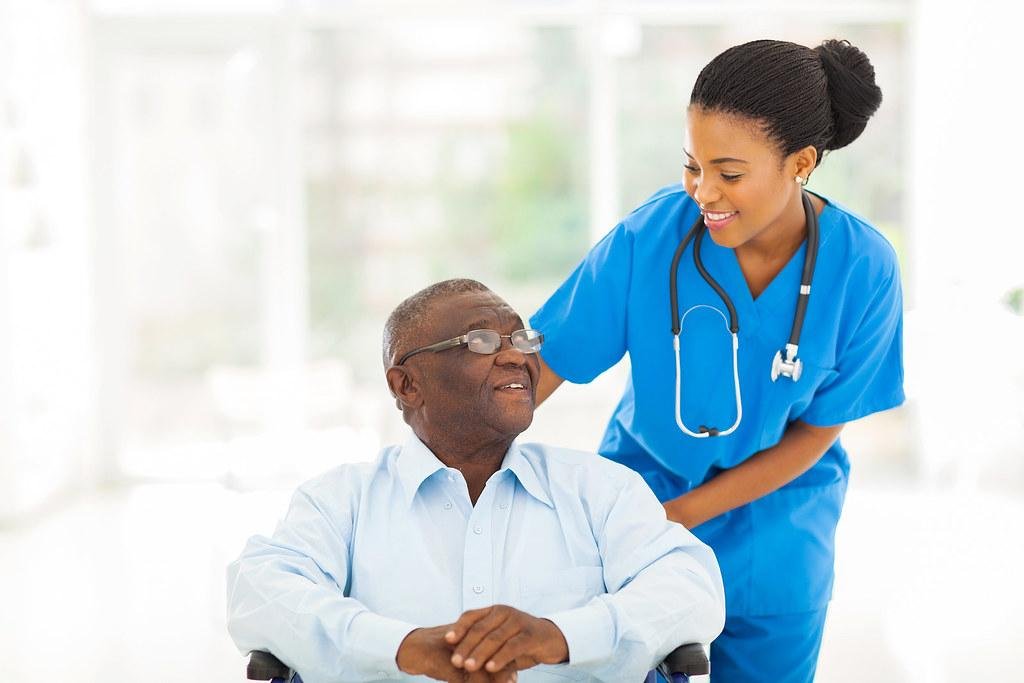As a society, we owe a profound debt of gratitude to our veterans, and one way to repay that responsibility is to provide them with the best care possible. The Veterans Affairs (VA) Health Care System can assist with that. Care is provided to veterans in the comfort of their own homes by these specialists so that they can maintain their independence and quality of life. VA home health care providers play an important part in our society by ensuring that veterans receive the care and attention they need.
The aging veteran population is increasing the demand for VA home healthcare workers. These professionals offer anything from primary home health care to cutting-edge medical care to veterans. Whether it’s helping a veteran keep track of their medications or providing assistance with basic housekeeping, VA home health care providers make a meaningful difference in the lives of the people they care for. If you’re looking for a position as a VA home health care provider, you’ve come to the right place. In this article, we’ll discuss the services provided by VA home health care providers, as well as their salaries, entry requirements, and the educational benefits available to them through the VA. If so, then let’s get moving!
What Is The Community Care Network?
The Department of Veterans Affairs (VA) partners with healthcare providers across the country to offer care to qualified Veterans outside of the VA healthcare system through the Community Care Network (CCN).
The VA collaborates with CCN providers to give Veterans the best possible treatment for their unique medical requirements.
How Does VA Community Care Work For Home Care Agencies?
Veterans who need specialized care that isn’t offered at VA hospitals or who are unable to easily travel there can benefit greatly from this program.
The VA does not directly offer HHA/Homemaker or respite services, but instead contracts with and pays for such care from community providers on behalf of Veterans.
Common Services Provided by VA Home Health Care Providers
Veterans can get a variety of health care services from VA Home Health Care Providers. VA Home Health Care Providers typically offer the following services to their patients:
Skilled Nursing Care:
Veterans can get professional nursing assistance in the comfort of their own homes from the VA’s network of home health care providers. Wound treatment, drug administration, and vital sign monitoring are all examples of the kind of services provided by skilled nurses.
Physical Therapy:
VA HHC Providers also provide physical therapy services to their patients. Veterans might benefit from physical therapy by regaining strength and mobility after illness, injury, or surgery.
Occupational Therapy:
VA Home Health Care Providers also provide occupational therapy for their patients. Veterans might benefit from occupational therapy in a number of ways, including more independence and betterment in doing daily tasks.
Speech Therapy:
Veterans who have trouble speaking, swallowing, or communicating can take advantage of speech therapy services provided by VA home health care providers.
Home Health Aide Services:
Veterans who have served their country and are in need of assistance with daily tasks can take advantage of home health aide services. This include helping with things like personal hygiene and getting dressed.
Medical Social Services:
Veterans and their families can rely on medical social services to help them deal with the psychological and social effects of illness and injury. Counseling, teaching, and organizing community resources are all examples of what are known as “medical social services.”
Palliative Care:
Veterans with terminal illnesses have access to palliative treatment in order to alleviate suffering and boost quality of life. In addition to alleviating suffering, palliative care also provides psychological and spiritual support.
Hospice Care:
When a patient’s prognosis is six months or fewer, hospice care is offered to them. Comfort measures, including as pain relief and spiritual counseling, are at the heart of hospice care, which also addresses physical ailments.
Telehealth Services:
Veterans in rural or hard-to-reach regions can take use of telehealth programs to get the medical attention they need. Services in the field of telehealth include remote patient monitoring and doctor consultations.
Emergency Care:
Caregivers of veterans who require a temporary vacation from their responsibilities might get respite care. Caregivers can rest assured that their loved one will continue to receive quality care throughout respite stays.
It is the goal of VA Home Health treatment professionals to coordinate treatment for veterans with the VA healthcare system and other healthcare professionals.
Compensation for VA Home Healthcare Workers
The average annual income for a Home Health Aide in the United States in May 2021 was $27,660, or $13.30 per hour. This salary includes VA Home Health Care Providers. Salary ranges may change based on a number of variables, including but not limited to: level of education, years of experience, geography, and company type.
Additionally, Payscale.com stated that the average hourly rate for a Home Health Aide is $11.84, with a range of $8.46 – $17.63 for Veterans’ home health care providers. The website also claimed that because of the importance of their work caring for veterans, VA Home Health Care Providers may receive a compensation increase.
How to Apply to Work in VA Home Health Care
Education, licensing, experience, and continuous training are all necessary to become a VA Home Health Care Provider. The procedure is as follows:
Obtain the Necessary Knowledge and Training
It is necessary to get the necessary knowledge and training before working as a VA Home Health Care Provider. In most cases, employers expect applicants to have at least a high school graduation; however, those with healthcare-related education, such as from a Certified Nursing Assistant (CNA) or licensed practical nursing (LPN) degree, have an advantage.
Become Licensed
A BACKGROUND CHECK IS BEING DONE.
In many cases, a background check is necessary to become licensed as a VA home health care provider. The health and safety of patients in a provider’s care depends in large part on the results of background checks. This prerequisite can only be met by applying in accordance with the rules established by the applicant’s home state’s licensing board. To pass a background check in such states, candidates have to use an official provider of electronic fingerprinting services.
To fulfill this criterion in Florida, applicants must use a vendor approved by the Florida Department of Business and Professional Regulation (DBPR). Florida Electronic Fingerprinting Service (FEPS) is a widely used approved vendor.
APPLYING FOR THE LICENSE
Applying to your state’s licensing board is the first step toward becoming a VA Home Health Care Provider. While specifics may vary by state, most applications will include some combination of the following: contact information; educational history; and current license or certification. As was previously indicated, applicants might also be required to provide a background check.
STUDYING FOR THE EXAM
To practice as a VA Home Health Care Provider in those states, one must first pass a certification exam. Topics on the exam may include patient care, patient safety, and medical procedures. Participants could think about enrolling in a certification course or using study materials to get ready for the exam.
APPROVING A LICENSE
An individual will be issued a VA Home Health Care Provider license if they have fulfilled all eligibility criteria. They can now lawfully serve patients in their state thanks to this certification. Providers must maintain active licenses by meeting state criteria for CEUs and other forms of professional development.
Get Real-World Experience
Volunteering as a VA Home Health Care Provider is a great way to gain valuable work experience and boost your career prospects. Volunteering, internships, or entry-level healthcare jobs are all great ways to get your foot in the door and gain experience. Opportunities to obtain expertise in this profession can be found through official networks and groups like the VA Voluntary Service.
Apply for Open Positions
To become a VA Home Health Care Provider, you must first have the required training and credentials. Official employment boards and networks are good places to look for available positions. Make an effort to highlight your talents and expertise in a well-written CV and cover letter.
Participate in Job Interviews
You might be contacted for an interview after completing your application. There could be several interviews, both over the phone and in person, before a final decision is made. Do your homework on the company, run through several mock interviews, and put your best foot forward by dressing the part. You can get useful advice and information about interviews on official sites and networks like the VA Careers website.
Complete Any Required Training or Continuing Education
In order to maintain your license and knowledge of the latest developments in your field, you may be required to undergo further training or continuing education. Official training or educational programs like the VA Learning University provide opportunities for further education and professional growth.
Keep your certifications and licenses up to date.
Last but not least, it is essential to stay current on any changes made to certification or licensing requirements. You may need to take more classes or get a license renewal to keep your certification current. Advice and specifics on what is needed to keep a license or certification current can be obtained from organizations like the National Council of State Boards of Nursing.
Use Your VA Educational Benefits to Become a Home Health Care Provider for Veterans
Veterans Affairs (VA) home health care providers have access to numerous training and education benefits from the VA. In order to qualify for these benefits, you must meet certain criteria, such as being a veteran or a dependent of a veteran. The VA offers a number of benefits for those who wish to further their education.
- Veterans can use their Post-9/11 GI Bill benefits to enroll in and complete higher education or vocational/technical training programs. It also provides a housing allowance as well as a book and supply stipend.
- Montgomery Veterans who served for at least two years are eligible for the GI Bill, which pays for higher education and vocational training.
- Veterans with disabilities resulting from their military service are eligible for vocational rehabilitation and employment services.
- The Survivors’ and Dependents’ Educational Assistance Program (DEAP) is a federally funded initiative that assists the surviving family members of veterans who were killed or became permanently injured as a result of their military service. Visit
- Veterans who have completed a term of national service are eligible for financing under the National Call to Service Program, which supports their further education and professional development.
- Visit https://www.va.gov/education/ for more on the VA’s educational assistance program, including how to apply and what you must do to qualify.
In conclusion
One last thing to remember is how crucial VA home healthcare workers are to the welfare of our nation’s veterans. These groups do outstanding work for veterans who are in need of medical care and assistance with day-to-day activities.
If you’re interested in working as a VA home healthcare caregiver, it’s crucial that you research the education, experience, and certification requirements in your state. It is also important to verify that you have passed all necessary screenings and have been approved by the VA to provide healthcare to veterans.
Example: The Florida Department of Law Enforcement (FDLE) mandates that all VA home health care providers in the state submit to a background inquiry. This is to make sure there is no criminal record on file for the care provider that could put the veterans under their care at risk.







